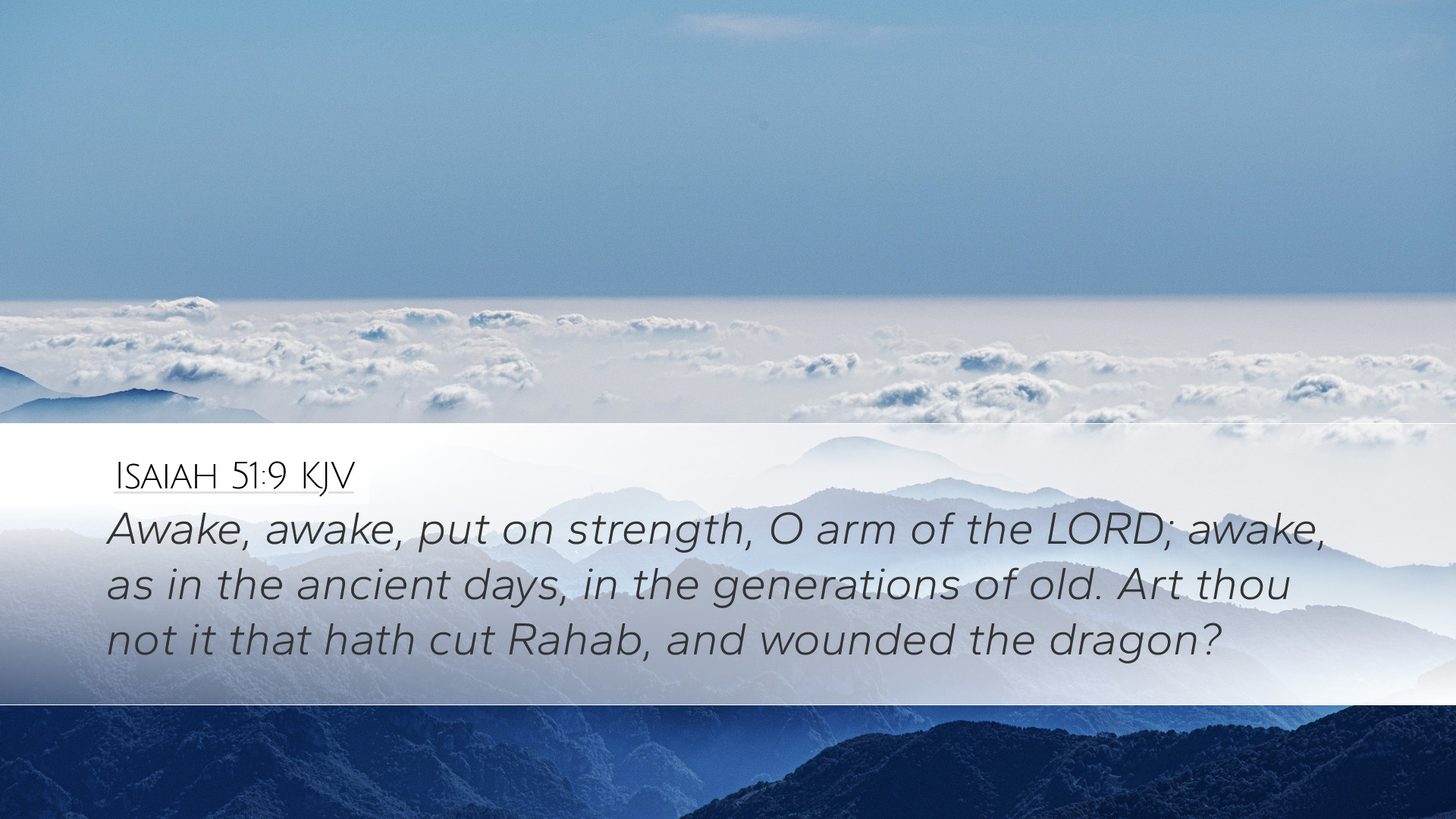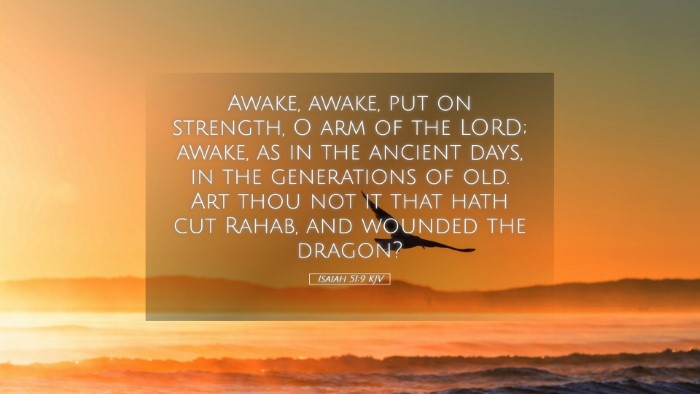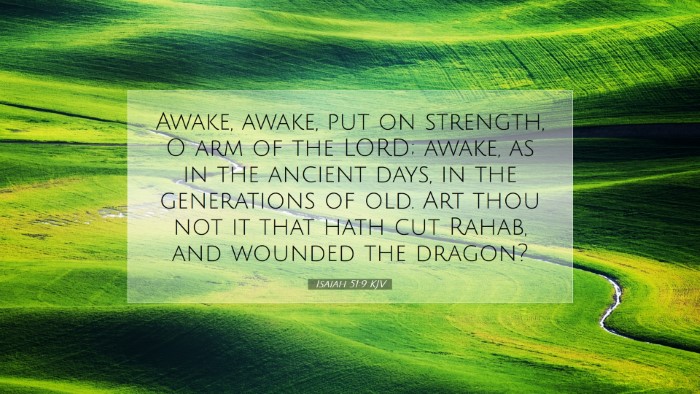Commentary on Isaiah 51:9
Isaiah 51:9 reads: "Awake, awake, put on strength, O arm of the Lord; awake, as in the ancient days, in the generations of old. Art thou not it that hath cut Rahab, and wounded the dragon?" This verse resonates deeply in the context of divine power and deliverance, serving as a poignant reminder of God's historical interventions on behalf of His people.
Contextual Background
The Book of Isaiah is richly prophetic, addressing both immediate societal issues and future divine promises. In chapter 51, the prophet calls upon the Lord's strength, reminding Israel of His past victories and urging them to trust in His ability to save once more.
The Call to Action
Isaiah begins with a powerful repetition: “Awake, awake.” This call signifies urgency and expectation. The repetition emphasizes the need for God's strength to be manifested in a time of desolation and despair. Matthew Henry comments on the significance of this awakening, highlighting that it is not merely a physical awakening but a spiritual one, calling the people to revive their faith in the Lord.
The Arm of the Lord
The reference to “the arm of the Lord” symbolizes God’s power and might, often depicted through His works of creation and salvation. Albert Barnes notes that the “arm” here personifies God's intervention in human affairs, reminding believers of His past acts of deliverance, which serve as a precursor to future salvations.
Historical Reminders
Isaiah recalls the “ancient days” and “generations of old,” drawing the people’s attention to God's past deliverances, particularly the Exodus and their victories against formidable foes. Adam Clarke emphasizes that such reflections encourage faith among believers, as they see God’s hands in their history. The mention of Rahab points to God’s defeat of the chaotic forces that oppose His purpose.
Understanding 'Rahab' and 'the Dragon'
In scripture, “Rahab” is often associated with chaos or the forces of disorder. The use of this term by Isaiah illustrates God’s power over chaos and evil. Matthew Henry elaborates that by mentioning Rahab, the prophet signifies that just as God silenced these forces before, He is more than capable of doing so again.
Similarly, the “dragon” is a symbol of the great beasts or creatures of opposition against God’s plans. Albert Barnes explains that the dragon may represent either Egypt or Babylon, symbolizing oppressive powers that threaten God's people. This dual imagery emphasizes God’s sovereignty over natural and supernatural adversaries alike.
Theological Implications
This verse brings forth profound theological insights about God's nature and His relationship with His people. The call to “put on strength” signifies a hopeful reliance on divine strength rather than human ability. Clarke points out that without the arm of the Lord being active, even the strongest efforts of the believers may be in vain.
Hope Amidst Despair
Isaiah’s invocation comes at a time of deep despair for Israel. His call to awake signals a yearning for revival among the people of God. This reflects a modern application; when congregations feel overwhelmed by the circumstances of life, they too can echo this cry for divine intervention. Matthew Henry affirms that believers should always seek an awakening in their spiritual lives to rekindle trust and reliance on God.
The Power of Remembrance
The reminder of God’s past victories acts as a bolstering agent for faith. Barnes explains that when believers recall the mighty works of God, it fosters a culture of hope and resilience. In ministry, it is essential for leaders to continually remind themselves and their congregations of the faithfulness of God throughout history, providing a strong foundation for present faith.
Contemporary Application
Pastors and theologians can draw from Isaiah 51:9 to encourage congregational prayer and reliance on God during tumultuous times. This text urges believers not only to recall God's past works but also to actively seek His strength.
- Awakening to God's Presence: Encourage congregations to seek a deeper awareness of God's continual presence and power in their lives.
- Remembrance of History: Help congregations reflect on the history of God's faithfulness, instilling hope in God's ongoing work.
- Prayer for Strength: Cultivate a culture of prayer where the community asks for God’s strength to face contemporary challenges.
Conclusion
Isaiah 51:9 serves as a poignant reminder of who God is—an active, powerful God who has historically intervened in the lives of His people. For pastors, students, and scholars, this verse underscores the importance of awakening to God's might and combining historical reflection with present faith. In doing so, believers can draw strength from a God who is unchanging and always ready to act on behalf of those who trust in Him.


